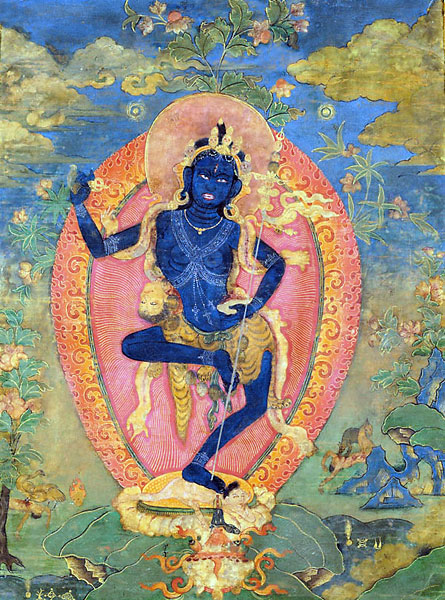With respect to different functions, Karma is classified into four kinds:
1. REPRODUCTIVE KARMA
Every birth is conditioned by a past good or bad karma, which predominated at the moment of death. Karma that conditions the future birth is called Reproductive Karma. The death of a person is merely ‘a temporary end of a temporary phenomenon’. Though the present form perishes, another form which is neither the same nor absolutely different takes its place, according to the potential thought-vibration generated at the death moment, because the Karmic force which propels the life-flux still survives. It is this last thought, which is technically called Reproductive (janaka) Karma, that determines the state of a person in his subsequent birth. This may be either a good or bad Karma.
According to the Commentary, Reproductive Karma is that which produces mental aggregates and material aggregates at the moment of conception. The initial consciousness, which is termed the patisandhi rebirth consciousness, is conditioned by this Reproductive (janaka) Karma. Simultaneous with the arising of the rebirth-consciousness, there arise the ‘body-decad’, ‘sex-decad’ and ‘base-decad’ (kaya-bhavavatthu dasakas). (decad = 10 factors).
(a) The body-decad is composed of:
- The element of extension (pathavi).
- The element of cohesion (apo).
- The element of heat (tajo).
- The element of motion (vayo).
(b) The four derivatives (upadana rupa):
- Colour (vanna).
- Odour (gandha).
- Taste (rasa).
- Nutritive Essence (oja)
These eight (mahabhuta 4 + upadana 4 = 8) are collectively called Avinibhoga Rupa (indivisable form or indivisable matter).
(c) Vitality (jivitindriya) and Body (kaya)
These (avinibhoga 8 + jivitindriya 1 + Kaya 1 = 10) ten are collectively called "Body-decad" = (Kaya dasaka).Sex-decad and Base-decad also consist of the first nine, sex (bhava) and seat of consciousness (vathu) respectively (i.e. eye, ear, nose, tongue, and body).
From this, it is evident that the sex of a person is determined at the very conception of a being. It is conditioned by Karma and is not a fortuitous combination of sperm and ovum cells. The Pain and Happiness one experiences in the course of one’s lifetime are the inevitable consequence of Reproductive Kamma.
2. SUPPORTIVE KARMA
That which comes near the Reproductive (janaka) Kamma and supports it. It is neither good nor bad and it assists or maintains the action of the Reproductive (janaka) Karma in the course of one’s lifetime. Immediately after conception till the death moment this Karma steps forward to support the Reproductive Karma. A moral supportive (kusala upathambhaka) Karma assists in giving health, wealth, happiness etc. to the being born with a moral Reproductive Karma. An immoral supportive Karma, on the other hand, assists in giving pain, sorrow, etc. to the being born with an immoral reproductive (akusala janaka) Karma, as for instance to a beast of burden.
3. OBSTRUCTIVE KARMA OR COUNTERACTIVE KARMA
Which, unlike the former, tends to weaken, interrupt and retard the fruition of the Reproductive Karma. For instance, a person born with a good Reproductive Karma may be subject to various ailments etc., thus preventing him from enjoying the blissful results of his good actions. An animal, on the other hand, who is born with a bad Reproductive Karma may lead a comfortable life by getting good food, lodging, etc., as a result of his good counteractive or obstructive (upabidaka) Karma preventing the fruition of the evil Reproductive Karma.
4. DESTRUCTIVE (UPAGHATAKA) KARMA
According to the law of Karma the potential energy of the Reproductive Karma could be nullified by a mere powerful opposing Karma of the past, which, seeking an opportunity, may quite unexpectedly operate, just as a powerful counteractive force can obstruct the path of a flying arrow and bring it down to the ground. Such an action is called Destructive (upaghataka) Karma, which is more effective than the previous two in that it is not only obstructive but also destroys the whole force. This Destructive Karma also may be either good or bad.
As an instance of operation of all the four, the case of Devadatta, who attempted to kill the Buddha and who caused a schism in the Sangha (disciples of the Buddha) may be cited. His good Reproductive Karma brought him birth in a royal family. His continued comfort and prosperity were due to the action of the Supportive Karma. The Counteractive or Obstructive Karma came into operation when he was subject to much humiliation as a result of his being excommunicated from the Sangha. Finally the Destructive Karma brought his life to a miserable end.
